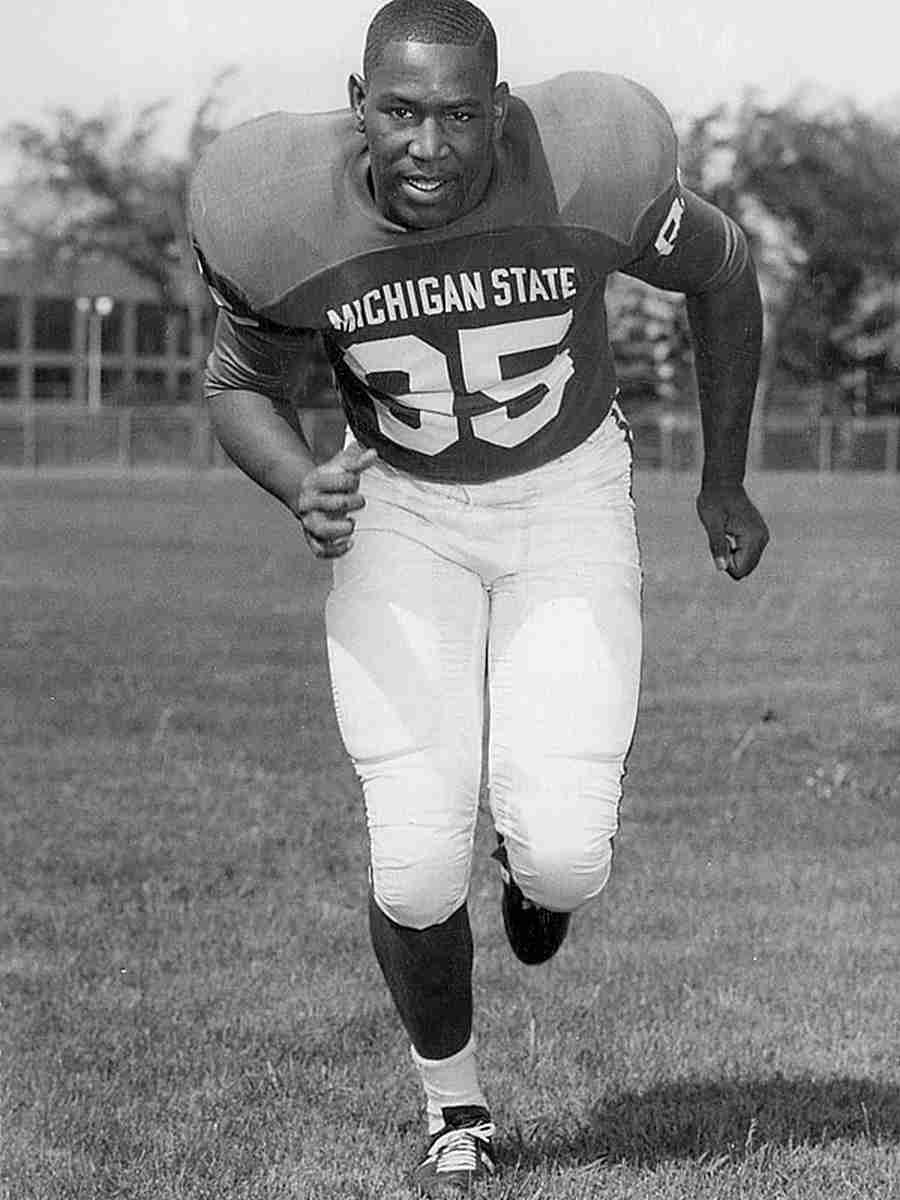He really did not want to talk. It was early in the morning in Los Angeles, and I was calling from Austin to do a telephone interview for my book about integration of Southwest Conference football. No, Bubba Smith was not too happy that day in 1985, but he said, “Go ahead.” After issuing an apology or two, I started in with my questions. In fact, we had a lot to talk about.
Smith died on August 3, 2011, bringing back memories of that interview. He lived 66 years. That’s too short a time, and yet he beat the odds since the median age of a former NFL player at death is 55. Football is a brutal game that takes a toll on every man who straps on a helmet and takes the field. Smith, a 6' 7'', 270-pound defensive end, had a great career that deserves a look back.
He grew up in Beaumont, Texas toward the end of the days of racial segregation. He graduated from high school in 1963, and his sincere wish was to attend the University of Texas and play for the Longhorns who were about to win their first national championship. Darrell Royal, then coach and athletic director at UT, was in a hard place. He knew football talent when he saw it, but he feared bucking the university’s conservative administrators, alumni and fans. He realized that integration, when it came—and it was coming—would involve numerous attitude adjustments within his football program. Royal told Smith and another superb black player from Beaumont, Mel Farr, that they were free to come to Austin and try out for the team.
Try out! Smith and Farr politely declined. Farr accepted a scholarship offer from UCLA and became an all-America running back. Smith also left Texas, heading way north to Michigan State. Twice an all-American with the Spartans, he met Farr again in the Rose Bowl following the 1965 season. Smith also took part in a titanic college football game, the 10-10 tie with Notre Dame in 1966. As for DKR, he did not have a black player on his varsity roster until 1970, by which time a lot of black Texans thought of him as a stone-cold racist. (Yet another great player from Beaumont, a receiver named Jerry LeVias, was two years younger than Smith and Farr. Royal gave him the same option of trying out at UT. But why do that when more than 100 schools were offering scholarships? LeVias took the one from SMU and quickly shattered the last vestiges of segregated college football between 1966 and 1968. All three—and surely others—were willing to come to Austin, but Royal could not or would not act. We can only speculate about how different things might have been.)
The Baltimore Colts made Smith the No. 1 overall pick in the 1967 NFL draft. Interestingly enough, three other MSU Spartans were among the first eight players chosen that year. Smith had an immediate impact as the Colts played in Super Bowls 3 and 4, winning the latter. But in a 1972 preseason game, he got tangled up with the sideline markers, suffered a terrible knee injury and was never the same. Traded to the Oakland Raiders and then to the Houston Oilers, Smith retired after just nine seasons.
We hear so many stories about former jocks who have blown through their money, gotten in trouble with the law or otherwise brought disrepute on their families. That was not the case with Bubba Smith, who headed for the coast and became an actor. He had limited range, it must be admitted. In every role, Smith played what might be called the big, amiable black guy. He appeared in television shows such as “Wonder Woman,” “Charlie’s Angels,” “MacGyver” and “Married with Children.” He gained most of his acting fame as Moses Hightower in the Police Academy movie series. Smith had a lucrative deal as a pitchman for Miller beer but abruptly quit when he perceived that he was contributing to alcohol abuse.
A quarterback’s nightmare on the field, Smith was also a gentle soul. My connection with him was tangential at best—a long-ago phone interview—but I am happy for even that. Rest in peace, big fella.


1 Comment
Hello Richard:
Very accurate piece on Bubba Smith. I have recently emailed you regarding a PBS program on Feb 11, 2022 at !0;PM regarding Michigan State 1965-66 Football Team with Bubba Smith, Gene Washington from LaPorte, TX, Mel Farr & others
The Banks of the Red Cedar is the program and book.
Please email me that your received this message and previous email.
Sincerely,
James A. Johnson
http://www.JamesAJohnsonEsq.com
Add Comment